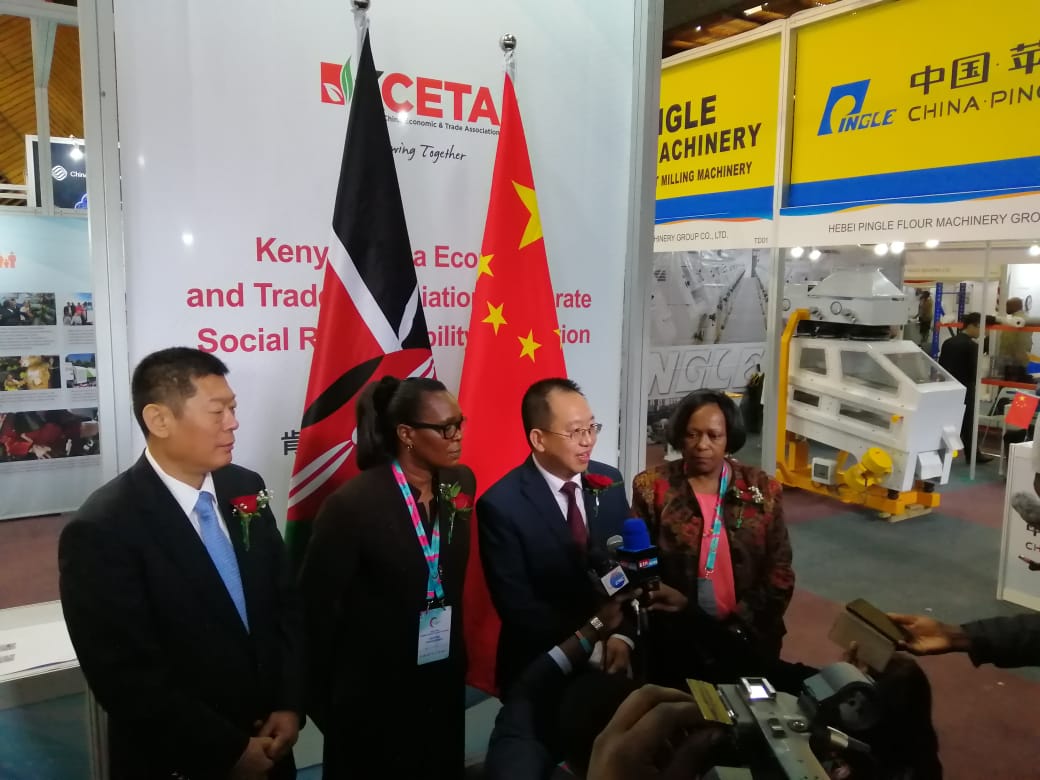
Kenyan economist looks ahead to China-Africa economic relations after COVID-19

When the novel coronavirus was first identified in Wuhan in December 2019, few had an inkling of the far-reaching effects it would have on the world.
Typically, once the virus began spreading, it was expected to make an impact on the health systems but the economic effects of COVID-19 in countries globally have been unprecedented. China, the world’s second-largest economy, has been in particular focus given its economic standing in the world and role in Africa’s economic development in the last several years.
China’s economy shrank by 6.8 percent year on year in the first quarter (Q1) as the COVID-19 outbreak dealt a huge blow to economic activity. However, its economic activities have continued to normalize as the latest data on industrial output, retail sales and investment showed across-the-board improvements. Despite this, the nation’s recovery still faces uncertainties and challenges from the global spread of the novel coronavirus.
As a result, China decided not to set a specific GDP target for 2020 capturing headlines worldwide and raising questions on its economic resilience amid the pandemic fallout. Among the questions raised include the state of China-Africa economic relations going forward.
Kenyan economist Tony Watima said that the decision by China to abandon economic growth targets for the sake of economic stabilization and poverty alleviation during the duration of the COVID-19 pandemic is laudable and an example to be emulated.
“It makes sense because this is a point in time that economies have been hit hard and need to stabilize first before you talk about growth. It is something that developing countries, especially in Africa, can consider,” he said.
“Rather than targeting economic growth, you look at how you (first) stabilize your economy from the impact of COVID-19 and then when you are in a position where you can talk about growth then you put targets.”
Watima argued that stabilization of economies is important particularly when fighting high levels of poverty as many African countries are.
While Watima expects trade between China and Africa to remain the same when economies open up, especially with the resumption of air transport, he predicts there will be a change in the capital financing that comes from China and is invested in Africa.
“I think we will see a slowdown of that (capital financing from China) because the Chinese government looks at stabilizing the economy so a lot of financing will be going back to China and stabilizing the economy. Capital outflows from or new capital inflows coming from China is what might be affected,” he said.
Though the main agenda of China and Africa after COVID-19 is still not very clear, Watima says a renegotiating of the debt that African nations owe to China will certainly be near the top. Moreover, countries with pending projects will look to discuss the way forward with China.
A significant percentage of Africa’s debt portfolio is with China. Data from the Johns Hopkins University showed that $143 billion was loaned to Africa by the Chinese government, banks, and companies between 2000 and 2017 with most of it for large-scale infrastructure projects.
African nations could also resort to diversifying their supply chains away from Africa and boosting intra-African trade to strengthen these chains following COVID-19.
“A number of economies, I think, their economies shut when they could not access the Chinese market where they could import a lot of things for their economies. We will see, probably, things that are basic commodities, African countries setting up import substitution strategies that will probably be targeting the supply chains that are linked to China,” he noted.
Watima believes that commodity supply chains between China and Africa will remain as the value chain of those supply chains lies a lot in China and African nations do not have the capacity to substitute commodity-valued things.
The two largest pillars of China-African economic relations, trade in commodities and infrastructure development, are not expected to have any future revisions of engagement, Watima said.
“The biggest partnership between the two is not really about the trade in basic needs but trade in commodities is one of the main partnerships that China has developed. So China is a value chain market for processing finished products in the commodity chain market. Countries in Africa do not have the capacity any time soon to develop themselves that they can add value to their commodities to the end of the value chain.”






